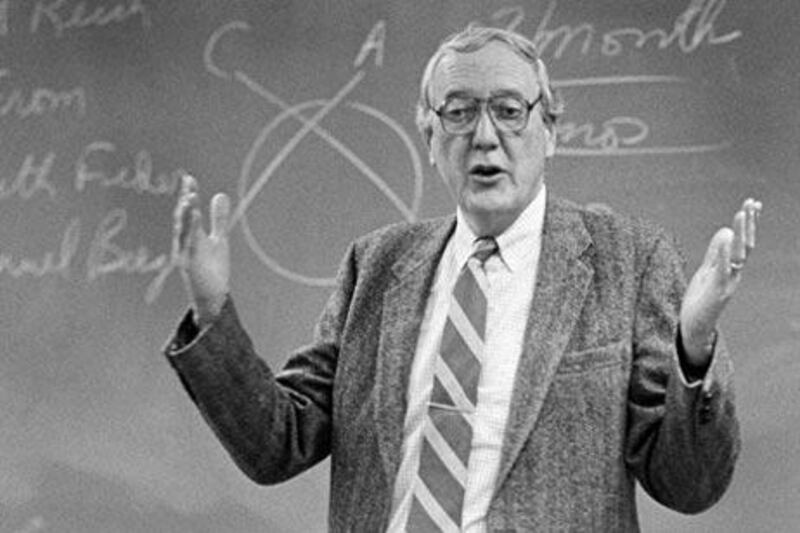An experienced journalist, respected by both Democrats and Republicans, James Wieghart was appointed to assist the independent investigation into the sale of arms to Iran and use of the profits to fund the sale to the Contras, the forces fighting Nicaragua's leftist government. It became known as the Iran-Contra affair and engulfed the last years of the Reagan administration. Born in Chicago, he served in the Army from 1951 to 1954. In 1965 he went to Washington as press secretary for Senator William Proxmire.
He returned to the Milwaukee Sentinel and its new Washington bureau in 1966 before joining The New York Daily News as a military and general reporter. He became, successively, its bureau chief, a columnist and executive editor in New York. In 1984 he became a general columnist with the Scripps-Howard news service and joined the panel for the Reagan-Mondale presidential debate, chosen from 83 candidates and one of only three acceptable to both sides. In 1986, he joined the office of Senator Edward Kennedy as staff director before his appointment as public information officer in the Office of Independent Counsel investigating the Iran-Contra affair.
Led by the former federal judge Lawrence Walsh, he served until 1989 and continued working as a consultant on the investigation until 1993. As co-author and editor of the report, he described the job as "a never-ending battle with a lot of lily-livered lawyers." The report concluded: "The underlying facts of Iran-Contra are that, regardless of criminality, President Reagan, the secretary of state, the secretary of defence and the director of central intelligence and their necessary assistants ... skirted the law, some of them broke the law, and almost all of them tried to cover up the president's wilful activities."
A colleague observed of Wieghart: "He believed that one of the functions of journalism was to comfort the afflicted and afflict the comfortable." James Wieghart was born on August 16, 1933, and died on February 21. He is survived by his wife and four daughters. * The National






